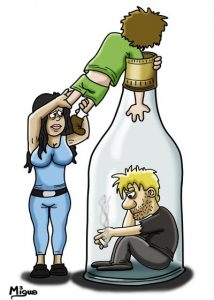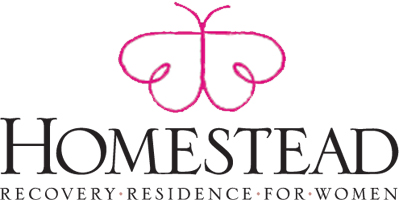I’m not the one with the problem, why do I have to participate in the recovery?
In 2017, an estimated 20.7 million people age 12 and older needed treatment for substance use disorder. Only 4 million received treatment (SAMHSA, 2018). In 2018, The National Institute on Drug Abuse estimated the relapse rate for substance use disorders was between 40% and 60%. I found this statistic shocking! Why are half of the people who receive treatment relapsing?
My personal experience working with individuals in recovery suggests that the family plays a much bigger role in a person’s recovery than is being acknowledged.
Substance use disorder (SUD) affects the whole family yet much of the treatment is focused solely on the individual who is in recovery. This problem is twofold, often the individual with SUD comes from a family structure that is already broken and after one to twelve months at a recovery facility will be returning to that same “broken” family system, and the cycle continues. Therapists and counselors need to provide the family with as much support as they do the individual in recovery. This goes beyond understanding the facts of addiction. This requires an intervention that addresses the interdependent nature of family relationships and how those relationships effect the person in recovery. It is this author’s belief that it is only through family therapy that one has the opportunity to deal with issues such as codependency and enabling, improving communication and providing a neutral forum where emotionally charged topics can be managed and resolved. It is through these therapeutic sessions that all family members are assured of being given the opportunity to be heard.
Individuals with substance use disorder cannot be understood and treated effectively without considering the impact of the whole family. Each family and each family member is uniquely affected by the individual using substances. It’s important to remember that family members are not being considered the “cause” of a person’s relapse, the same way they are not the “cause” of a successful recovery.
The good news…
Having a family member or members as part of a family program in addiction treatment, like Al-anon, has been associated with a 13% higher program completion rate for people being treated for addiction and a 15% higher rate of client abstinence at the 20 month follow-up. For More Information Visit www.al-anon.alateen.org
Be a part of the solution…You can do this! Margo

Leave a Comment
Posted: May 3, 2020 by info
Substance Use Disorder and the Family…
I’m not the one with the problem, why do I have to participate in the recovery?
In 2017, an estimated 20.7 million people age 12 and older needed treatment for substance use disorder. Only 4 million received treatment (SAMHSA, 2018). In 2018, The National Institute on Drug Abuse estimated the relapse rate for substance use disorders was between 40% and 60%. I found this statistic shocking! Why are half of the people who receive treatment relapsing?
My personal experience working with individuals in recovery suggests that the family plays a much bigger role in a person’s recovery than is being acknowledged.
Substance use disorder (SUD) affects the whole family yet much of the treatment is focused solely on the individual who is in recovery. This problem is twofold, often the individual with SUD comes from a family structure that is already broken and after one to twelve months at a recovery facility will be returning to that same “broken” family system, and the cycle continues. Therapists and counselors need to provide the family with as much support as they do the individual in recovery. This goes beyond understanding the facts of addiction. This requires an intervention that addresses the interdependent nature of family relationships and how those relationships effect the person in recovery. It is this author’s belief that it is only through family therapy that one has the opportunity to deal with issues such as codependency and enabling, improving communication and providing a neutral forum where emotionally charged topics can be managed and resolved. It is through these therapeutic sessions that all family members are assured of being given the opportunity to be heard.
Individuals with substance use disorder cannot be understood and treated effectively without considering the impact of the whole family. Each family and each family member is uniquely affected by the individual using substances. It’s important to remember that family members are not being considered the “cause” of a person’s relapse, the same way they are not the “cause” of a successful recovery.
The good news…
Having a family member or members as part of a family program in addiction treatment, like Al-anon, has been associated with a 13% higher program completion rate for people being treated for addiction and a 15% higher rate of client abstinence at the 20 month follow-up. For More Information Visit www.al-anon.alateen.org
Be a part of the solution…You can do this! Margo
Category: Know The Why
Blog: Know the Why